- Home
- Chris Ryan
The One That Got Away - Junior edition Page 5
The One That Got Away - Junior edition Read online
Page 5
Moving out, I kept close in to the left-hand wall of the wadi, because that was the steepest, and in the lee of it we were out of sight of the AA guns. When I turned round, I found that the guys had opened up to a tactical spacing of maybe twenty metres between each; but I was thinking, If we have a nonsense here, we want to be tight together. So I yelled back, ‘Close up!’
The bulldozer had gone out of sight, but we were moving towards where we’d last seen it. All too soon the wadi began to flatten out, and on our left a long slope ran up to the plain above. As we came clear of the steep part of the wadi wall, I suddenly saw two Iraqis on the high ground above us, guns down by their sides. They were barely 200 metres away, and weren’t moving. They didn’t look surprised as we walked into their view. Both were wearing dark overcoats on top of their dishdashes (native cotton robes), which reached down to their ankles. Also they had red-and-white shamags done up on top of their heads like turbans. I reckoned they were civilians or possibly militia.
It’s that boy, I said to myself. He’s tipped them off.
We kept going. But the two Iraqis began to parallel us, moving forward. In case anybody hadn’t seen them, I called back, ‘We’ve got two on the high ground to the left, and they’re walking down. Keep going!’
Afterwards, I realized that the two Iraqis were waiting for reinforcements to come up; also, they were probably a bit confused because they didn’t know who we were. But at the time I was wondering if we could outrun them, or lose them somehow, without starting a firefight.
Then I blew it in a big way. I’m going to try the double bluff here, I thought, and I waved at them.
Unfortunately I did it with my left hand, which to an Arab is the ultimate insult – your left hand being the one you wipe your bum with. Immediately one of them brought up his weapon and opened fire.
Contact!
We swung round and put a couple of short bursts back at them. Both dropped onto one knee to continue firing. As I stood there, I saw Vince take off down the wadi.
‘Stay together!’ I yelled. ‘Slow down!’
We began to run, turning to fire aimed bursts. The secret is to keep them short – no more than two or three rounds at a time. Otherwise the recoil makes the weapon drift up and the rounds go high. We ran and fired, ran and fired.
Within seconds a tipper truck with metal sides screeched to a halt beside the two Iraqis, and eight or ten guys spilled out of it. Stan also saw an armoured car carrying a .50 machine gun pull up. Some of the Iraqis began firing from the back of the truck, others from positions behind it.
It looked as though there were about a dozen men altogether. They had automatic rifles and at least the one heavy machine gun. But their fire was inaccurate, and we could cope with them. In my mind they weren’t the real threat. I was more worried that a bigger force was probably driving round ahead of us – out of sight – to cut off our retreat.
Looking back, I found that the guys were running across the open ground, struggling under the weight of their bergens. At one moment the patrol formed a tight group, then we spread out again, some running, others taking turns to stop, put down rounds, then run again.
If anyone says he’s not frightened in a firefight, I don’t believe him. I was certainly scared, and so was everyone else. But the Regiment’s strength lies in the fact that its members are highly trained to control their fear and respond positively to any threat they face.
In this contact, the flow of adrenalin was fearsome. On we went, legging it up the slope now, shooting at the enemy as they ran back and forth between vehicles. Three times I saw men go down when I fired. One went down behind a mound and never came up. Two others rolled over as they were running. At one point there was a massive explosion from one of the vehicles.
Green tracer started coming across, whizzing past our heads. We were right in the open, and whenever one of us stopped to turn and fire, the enemy seemed to concentrate on him, and we could see the tracer close in on the stationary target.
As the tracer flew, I started screaming into my tactical rescue beacon (TACBE) – a device that sends a distress signal to any nearby friendly aircraft, and which can also be used on voice comms:
‘TURBO! TURBO! This is Bravo Two Zero. CONTACT! CONTACT!’
Andy was doing the same. The TACBEs should have produced an answer within seconds. But nothing happened.
‘My TACBE’s broken!’ I yelled to Andy.
‘Can’t get through on mine, either.’
‘Keep trying.’
Then somebody shouted, ‘I’m ditching my bergen!’
Someone else yelled, ‘I am too!’
Next second, I was doing it myself, fighting to get the straps off my shoulder. Then I was kneeling by the pack, struggling with the clips on the top flap to free my 66. I got one clip undone. Just as I reached my hand towards the other, the clip exploded in pieces, hit by a .50 bullet. If my hand had been three or four centimetres farther forward, I would have lost it. The heavy round put the bergen down flat beside me. I leaped on it, grabbed the 66, whipped it over my shoulder and started off again. Ahead of me to the right I saw big splashes of soil or rock coming up. The anti-aircraft position had opened up on us, and rounds from those things were coming across as well.
By now we were walking. We couldn’t run uphill any more. But as I moved away from my bergen, I was thinking, What is there in there that I should have? Then I realized: it was the medic pack. ‘Left behind the medic pack!’ I shouted to no one in particular.
When I’d gone about twenty metres from the bergen I said to Legs, ‘Have you got the radio?’
‘No,’ he gasped. ‘No time. I had to leave it.’
Suddenly I remembered, My hip flask! It was the one my wife had given me for Christmas, and it was still in my bergen.
I don’t know what happened. The sensible thing would have been to leave it behind. But something clicked, and without hesitation I ran back down the slope. As I reached the bergen, I thought, You idiot, you’re going to get shot now. As I bent down, my back to the Iraqis, I imagined parts of my chest hurtling out in front of me, and wondered what it would look like. Would my clothes tear apart and bits of flesh and bone fly out? But I stuck my hand into the top of the pack, found the flask, brought it out, stuffed it into a trouser pocket and started forward again.
By then I was finding it hard to walk. I felt like I was suffocating. But fear was driving me on.
At last we got over the top, into dead ground, and collapsed onto the deck. ‘I don’t know how we managed that,’ Andy gasped.
‘Nor do I,’ I said. ‘But look at this – at least I got my flask back.’
‘Where was it?’
‘In my bergen,’ I told him. Andy was stunned. ‘I went back for it.’ I unscrewed the top, took a swig of whisky and handed it to him.
For a few seconds we lay there, trying to get our breath. When we stood up again to see where the guys were, we were amazed to find everyone in one piece. I’d thought we must have lost two or three, but they all appeared and came round, just like that, nobody so much as touched.
It took us only a few seconds to reach a group decision. If our Lost Comms procedure worked, the Chinook would come in to the drop-off point at midnight; but now that we’d stirred up such a hornets’ nest, and the Iraqis knew we were in the area, the chances were that they’d ambush the helicopter and shoot it down.
We decided it was safer to make for the Syrian border.
First, though, we’d head south, to throw the Iraqis off our track.
‘Right,’ I called, ‘let’s go.’ Without trying to take command, but wanting out of this place, I led off, with Andy behind me and the rest in line.
By then we thought we were out of range of the Iraqis’ original position, but some of them had worked their way round onto a closer ridge. As we came into view they opened up again. Also, we were back in view of the antiaircraft gunners, who resumed firing. Some rounds were whizzing past us, others landing t
en or fifteen metres away. We just kept walking like mad.
Then the vehicle with the .50 machine gun came up onto a crest and started cracking rounds over us again from a range of 400 or 500 metres. Luckily for us, though, the light was dying and the rounds were going far too high.
So we set off, and walked for our lives into the gathering night.
Thursday 24 January: Escape – Night One
Until we cleared the second long valley, a few anti-aircraft rounds were still falling in. Some burst in the air with a puff of black smoke and a crack, and others hit the ground. Then we were in the clear, out on the barren gravel plains, and we headed due south, marching as fast as we could in single file. Mark guided us with his GPS.
It was a great shock to us that we seemed to have been abandoned by our own people. It’s an unwritten rule of the Regiment that if guys need help, their mates come and get them. Now we’d yelled ourselves hoarse on radios and TACBEs, and there had been no result. We could not have known at the time that the nearest aircraft that could have detected the TACBE was 500 kilometres to the east – about four times the maximum range of the machines – and that we had been given the wrong radio frequencies, so that none of our calls on the 319 had gone through unscrambled.
After half an hour someone shouted, ‘We’re being followed!’
Looking back, we saw the lights of a vehicle. At first we couldn’t tell whether or not it was moving, but then through Vince’s night-sight we made out that it was definitely coming after us. In some places the desert was completely flat, with no features of any kind. The vehicle could make good speed across those areas. But luckily for us there were also a lot of wadis, in which the going was rough and the driver had to go slowly. There was no way he could see us – the night was too dark for that – but he knew the line we’d taken down the first wadi. He was driving in the direction he’d seen us go.
Our boots crunched on the ground. We could have been quieter if we’d gone slowly, but we needed speed. I went as fast as I could in spite of the noise, with the other guys close behind, at intervals of no more than two metres between each man. We knew that although the desert seemed empty, there were outposts dotted all over it. We could have walked onto a position at any moment. There was also the risk of stumbling into an encampment of the desert-dwelling Bedouin.
After an hour, and maybe eight or nine kilometres, we stopped and came together in a group. Dinger took off his jacket and started covering it with rocks.
‘What are you doing?’ I asked.
‘I’m ditching my jacket. It’s far too hot.’
‘Keep it,’ I told him. ‘Tie it round your waist. You’re going to need it.’
Later he thanked me, and said I’d saved his life. But for the moment he cursed as we got going again. I kept thinking of all the stuff I’d left behind. I hated the idea of the Iraqis stealing our kit. With a flicker of satisfaction I remembered that we’d left the claymores and anti-personnel mines buried in the floor of the wadi, and wondered whether they’d taken any of the enemy out. I also wished I’d kept more food in my pouches, and less ammunition. As it was, I had nothing to eat but two packets of hard, biscuits, five in each packet. At the very least we were in for forty-eight hours of hard going, on little food and water.
When you’re moving in a straight line, and have a contact, it’s usually the Number One who gets hit. Even if he isn’t shot, it’s Numbers Two and Three who have to get him out of trouble. On that march our standard operating procedure (SOP) – which everyone knew by heart – was that if we hit trouble the lead scout would put a 203 round towards the enemy and empty a magazine in their direction. By that time Two and Three should already have gone to ground, and be putting rounds down. Number One would then spring back, zigzagging, and go to ground himself, to cover the other two, while the rest of the guys fanned out. It was important, though, not to panic and start firing at phantoms, as shots would immediately give our position away.
I was Number One. Vince, who was Number Two, kept dropping back, as if he didn’t want to be near me. ‘If we get a contact in front,’ he said, ‘whatever you do, don’t fire back. You’re better off sticking your hands up.’
I said, ‘Hey – if we get a contact, I’m shooting. Because if we get captured, we’ll get done.’
‘Don’t. If you shoot one of them, they’ll kill the lot of us.’
By that time the patrol had closed up again, and there was a bit of an argument. Nobody agreed with Vince so I just said, ‘Stick behind me,’ and led off again.
A few minutes later a message came up the line, to slow down and stop. Somebody shouted, ‘Stan’s gone down!’
Stan was one of the strongest guys in the patrol. I ran back and asked what was wrong, but he was on the deck and seemed to be nearly unconscious.
‘Stan!’ I said. ‘What’s wrong?’
He just went ‘Urrrhhh!’
One of the guys said, ‘I reckon it’s heat exhaustion. He’s sweating really badly.’
‘But it’s freezing,’ I said.
I’d been sweating a bit myself, but not that much. What we didn’t know was that Stan was still wearing his thermal underclothes under his DPMs. He’d been caught out with them on when the contact started, and hadn’t had a chance to take them off. The result was that he’d become seriously overheated and had sweated himself dry.
We got out our water bottles. I tipped sachets of white rehydrate powder into four of them and started pouring the water down his neck. He drank six pints at least. That should have pulled him round, but he was still dizzy and exhausted, not making much sense.
Somebody said, ‘We should look for a safe spot and leave him. Find a hole in the ground, somewhere we can find him again when we get reinforcements.’
There was no way I’d do that. We couldn’t leave one guy by himself – not when there were seven more of us, all strong and still fresh. But if he thought we’d ditch him, maybe it would spur him on. I bent over Stan and said in a menacing voice, ‘Listen: if you don’t start walking, we’re going to leave you. Understand?’
He nodded and gave a grunt.
‘Get up, then,’ I told him. ‘Just fix your eyes on my webbing, and keep that in sight.’
Andy took Stan’s Minimi, then said to me, ‘Chris, take this,’ and gave me the night-sight Stan had been carrying slung round his neck.
‘I don’t want that,’ I protested. The sight weighed about two kilograms, and I thought it would be a pain to have it dangling on my chest. But I took it – and thank God I did, because without doubt it saved my life. I also took a box of 200 rounds for the Minimi and slung it over my shoulder.
We couldn’t hang around any longer, because the vehicle lights were still bobbing about in the darkness behind us. I got hold of Stan again and repeated, ‘Just walk behind me – and whatever you do, keep going.’
Once more I led, with Stan at my back now, Vince behind him, and the rest of the patrol following. Lead scout is a tiring job, because you have to be looking ahead all the time; but, being quite observant, I reckoned that if there was something in front of us, I would see it as quickly as anyone else. As before, Andy took the patrol commander’s middle slot.
Every time we stopped for Mark to do a GPS check, I’d say, ‘Stan, get your head down for a minute,’ and he’d lie down without a word. When we were ready to start again I’d give him a kick and say, ‘OK, Stan, let’s go,’ and he’d get up again and start walking right behind me – only to fall back, farther and farther.
The vehicle lights were still coming up behind us. We decided to double back on ourselves. Until then we’d been heading back towards the Saudi border. Now we resolved to turn right – westwards – for a spell, then right again, and head northwards across the main supply route which we’d been watching. The loss of our jerry cans had forced us to modify our original plan of going northwest, straight for the Syrian border. Obviously we would need water, so we decided to aim due north, for the River Euphrates,
and follow it out to the frontier.
So, after sixteen quick kilometres southwards, we turned due west and did ten kilometres in that direction. The pace was very, very fast – speed marching, probably about nine kilometres an hour. Now and then we crossed a dry wadi like the one in which we’d lain up, but for most of the way the desert was completely open. Whenever we heard the sound of jet engines overhead, we’d switch on our TACBEs and shout into them. But there was no answer.
By the end of the ten kilometres westwards, the strain was starting to tell. We’d been moving at high speed, with 20 kg belt-kits and our weapons, and we were sweating quite a bit in spite of the cold. That meant we were all thirsty, and soon we’d drunk nearly all our water. Whenever we stopped, we made sure to get more liquid down Stan’s neck. He had kept going by sheer willpower. After such a collapse it was a major feat to maintain the pace we were setting.
As soon as we’d fully lost sight of the vehicle behind us, we made our second right turn and headed north, stopping frequently to check our position with the GPS. This went on until we thought we were back within about seven kilometres of the main supply route. We were coming to the most dangerous bit. If we got caught on those tracks, out in the open, it would all be over. We needed to move even more quickly.
By then I was using the night-sight most of the time, with my weapon tucked under my left arm. It was awkward and tiring to walk like that. After a while my eyes started to hurt as well, because looking through the sight was like staring at a light. But there was no alternative. Soon I could make out the ridge on which the anti-aircraft guns were mounted, and I kept scanning for lights or artificial shapes, focusing my attention on what lay ahead.

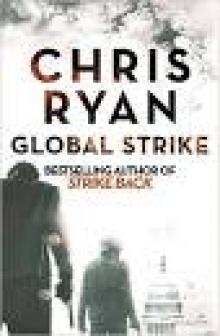 Global Strike
Global Strike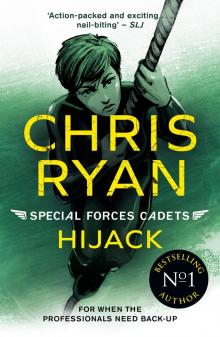 Hijack
Hijack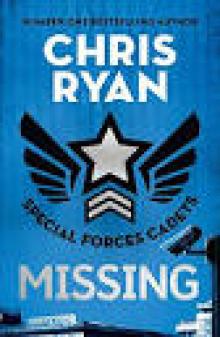 Special Forces Cadets 2
Special Forces Cadets 2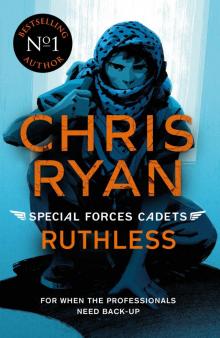 Ruthless
Ruthless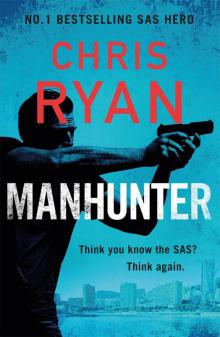 Manhunter
Manhunter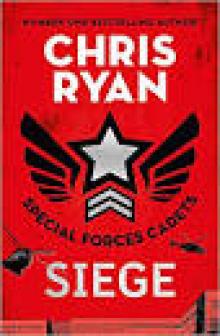 Special Forces Cadets 1
Special Forces Cadets 1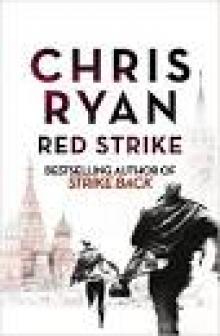 Red Strike
Red Strike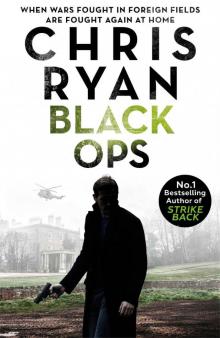 Black Ops
Black Ops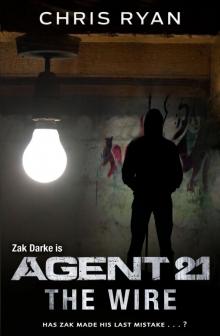 Agent 21: The Wire
Agent 21: The Wire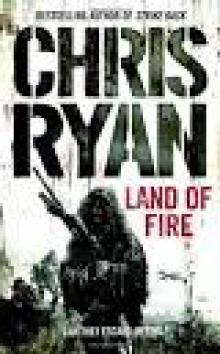 Land of Fire
Land of Fire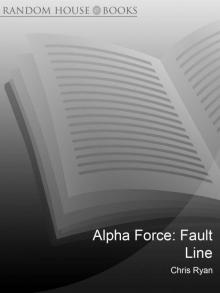 Alpha Force: Fault Line
Alpha Force: Fault Line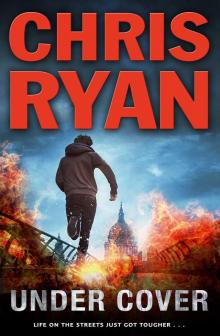 Under Cover (Agent 21)
Under Cover (Agent 21)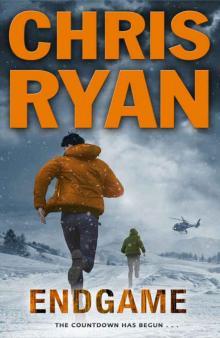 Endgame (Agent 21)
Endgame (Agent 21) Red Centre
Red Centre Blackout
Blackout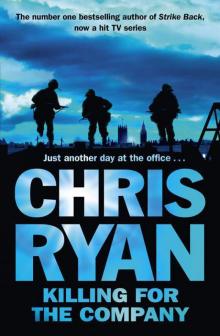 Killing for the Company
Killing for the Company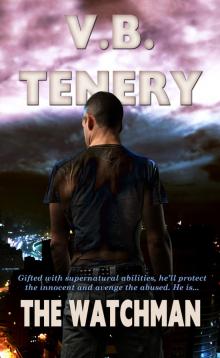 The Watchman
The Watchman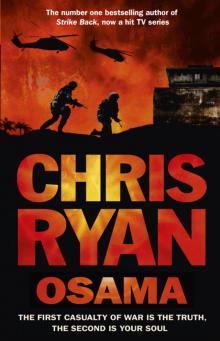 Osama
Osama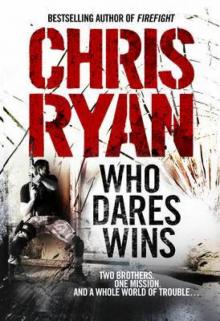 Who Dares Wins
Who Dares Wins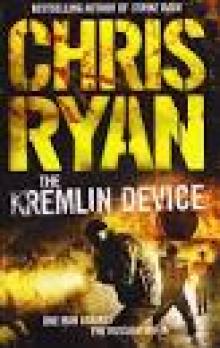 The Kremlin Device
The Kremlin Device Hunter Killer
Hunter Killer Alpha Force: Untouchable
Alpha Force: Untouchable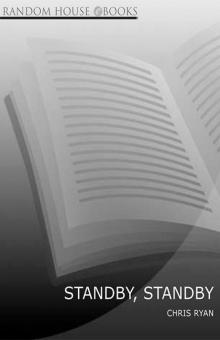 Stand By Stand By
Stand By Stand By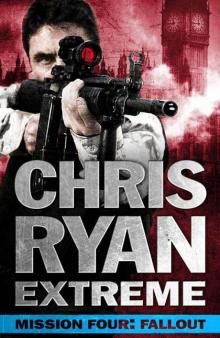 Chris Ryan Extreme: Hard Target: Mission Four: Fallout
Chris Ryan Extreme: Hard Target: Mission Four: Fallout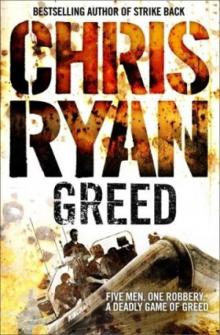 Greed mb-1
Greed mb-1 Alpha Force: Desert Pursuit
Alpha Force: Desert Pursuit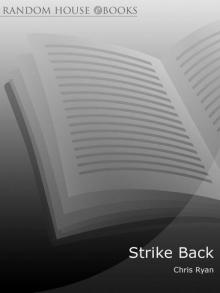 Strike Back
Strike Back Greed
Greed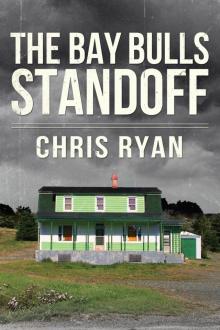 The Bay Bulls Standoff
The Bay Bulls Standoff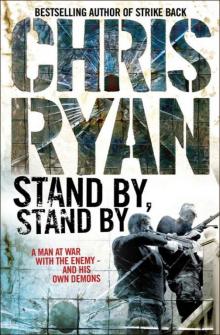 Stand By, Stand By gs-1
Stand By, Stand By gs-1 Outbreak
Outbreak Hunted
Hunted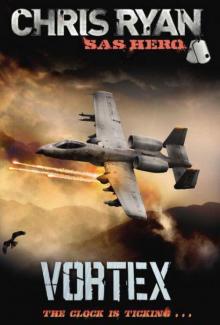 Vortex cr-4
Vortex cr-4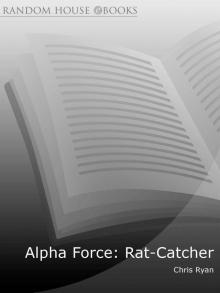 Rat-Catcher
Rat-Catcher Vortex
Vortex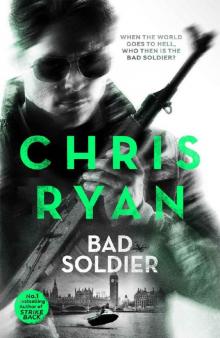 Bad Soldier
Bad Soldier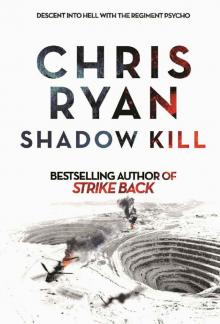 Shadow Kill: A Strikeback Novel
Shadow Kill: A Strikeback Novel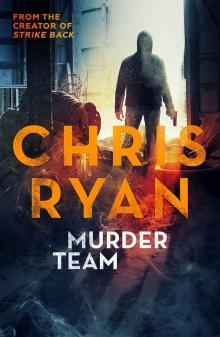 Murder Team (Kindle Single)
Murder Team (Kindle Single) One Good Turn
One Good Turn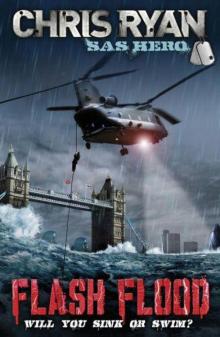 Flash Flood cr-1
Flash Flood cr-1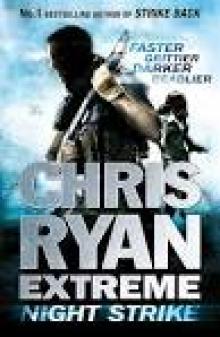 Night Strike
Night Strike Wildfire
Wildfire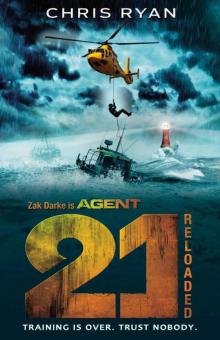 Agent 21: Reloaded: Book 2
Agent 21: Reloaded: Book 2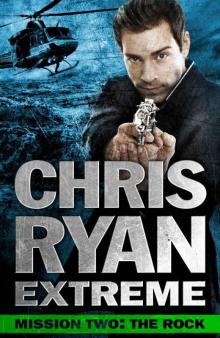 Chris Ryan Extreme: Hard Target: Mission Two: The Rock
Chris Ryan Extreme: Hard Target: Mission Two: The Rock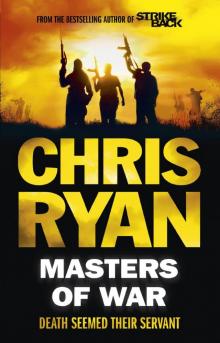 Masters of War
Masters of War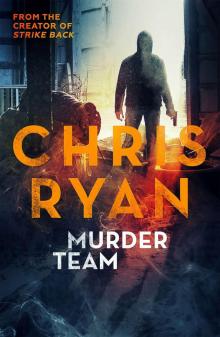 Murder Team
Murder Team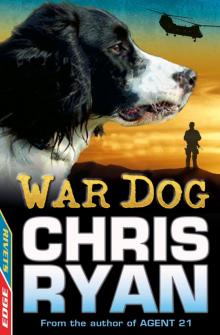 War Dog
War Dog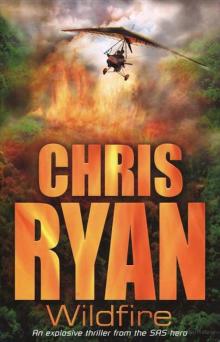 Wildfire cr-2
Wildfire cr-2 Survival
Survival The One That Got Away - Junior edition
The One That Got Away - Junior edition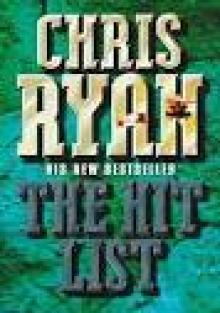 The Hit List
The Hit List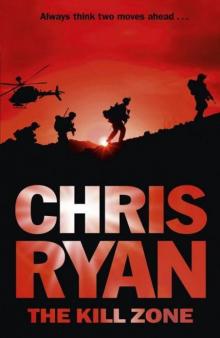 The Kill Zone
The Kill Zone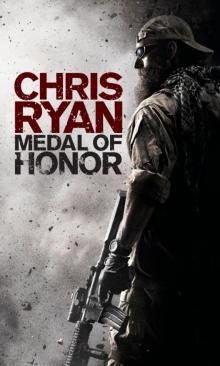 Medal of Honor
Medal of Honor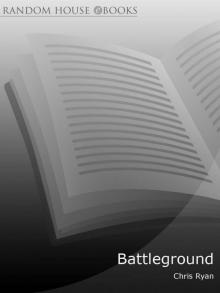 Battleground
Battleground Twister
Twister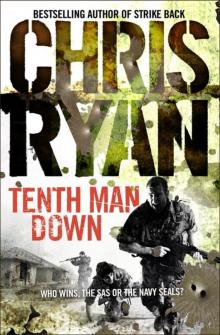 Tenth Man Down gs-4
Tenth Man Down gs-4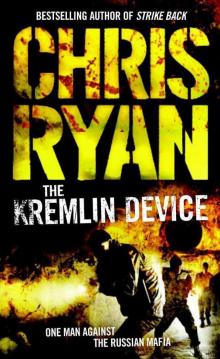 The Kremlin Device gs-3
The Kremlin Device gs-3 Hostage
Hostage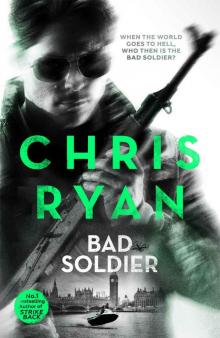 Bad Soldier: Danny Black Thriller 4
Bad Soldier: Danny Black Thriller 4 Alpha Force: Blood Money
Alpha Force: Blood Money Firefight
Firefight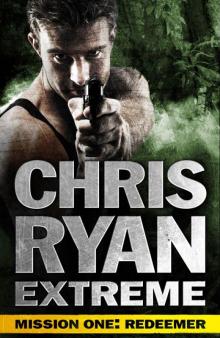 Chris Ryan Extreme: Hard Target: Mission One: Redeemer
Chris Ryan Extreme: Hard Target: Mission One: Redeemer Hit List
Hit List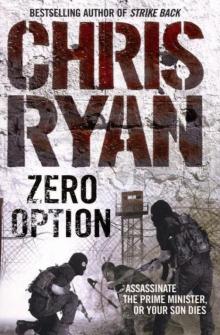 Zero Option gs-2
Zero Option gs-2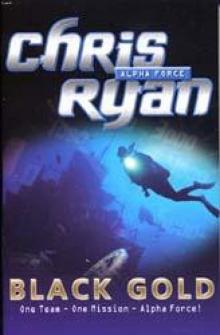 Black Gold
Black Gold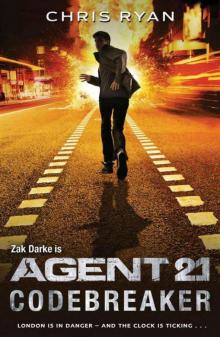 Agent 21: Codebreaker: Book 3
Agent 21: Codebreaker: Book 3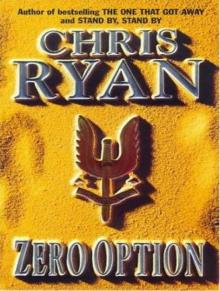 Zero Option
Zero Option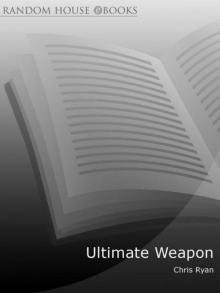 Ultimate Weapon
Ultimate Weapon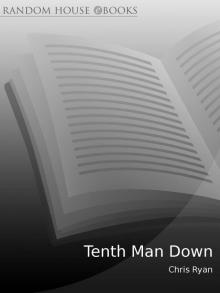 Tenth Man Down
Tenth Man Down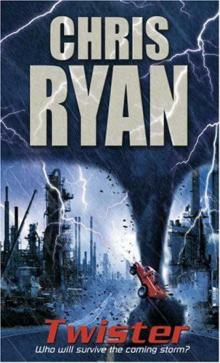 Twister cr-5
Twister cr-5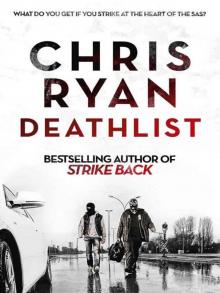 Deathlist
Deathlist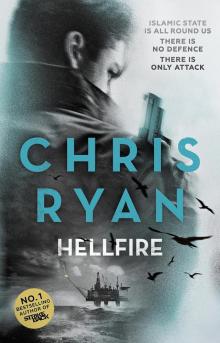 Hellfire
Hellfire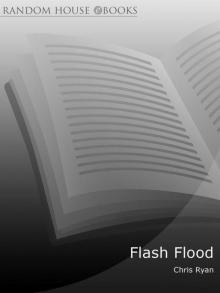 Flash Flood
Flash Flood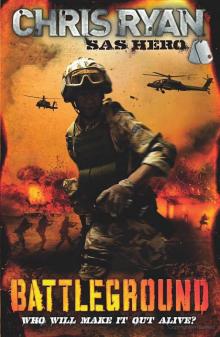 Battleground cr-6
Battleground cr-6 The Increment
The Increment